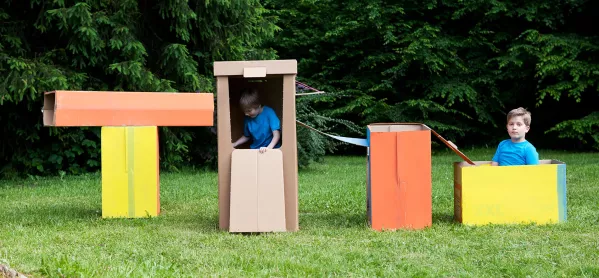It’s one of the easiest traps for teachers to fall into: “boxing in” our pupils.
A term will pass and a pupil, having shown a general trend, will be labelled as a “working towards” pupils or working at a “greater depth”.
As teachers, the conversations we have about our pupils and their progress are critical in understanding where they are and where we want them to be.
But too often our classroom teaching becomes constrained by labels, and then, ultimately, so are our pupils.
The differentiation trap
Historically, this has led to a lower-ability, middle-ability and higher-ability approaches; three or sometimes four-way differentiation, where pupils are categorised and offered scaffold and challenges rigidly.
But what if we offer a child a scaffold for learning, assuming they are going to require one, and this limits their thinking and learning around the subject material?
Having seen this in classrooms across several schools, I have noticed something interesting: differentiation is most effective when it is fluid and responsive.
The natural ebb and flow of pupils’ ability to grasp material within one subject needs to be considered before differentiation resources are haphazardly applied to groups of pupils.
The assumption that Pupil X will need a writing frame may not apply when they’re writing the opening of their story because they read an amazing opening the night before and want to mimic the sentence structures they absorbed during that reading session.
In this case, a child may actually be impairing the quality of their writing to the confines set by the scaffold offered.
Breaking the habit
So how do we gauge whether a pupil will require a scaffold or challenge on any given day?
This is where assessment for learning and check-ins become pivotal. Just like doctors who offer preventative measures when they diagnose patients with given symptoms, as teachers we need to take a diagnostic approach throughout our lessons, picking up on the cues, responses and how pupils engage with content within a given subject.
This allows us to practice fluid differentiation, responding to the needs of the pupils there and then to close the gap.
Offer scaffolds and challenges to all pupils as an option rather than assigning them.
You’ll likely find that pupils are more comfortable seeking support from scaffolds because they feel it is an option and a label isn’t being imposed on them (sometimes they may require some encouragement if you notice they require support).
Others will seek challenge and want to push their learning forward, perhaps unexpectedly.
This is not to say that pupils with specific needs shouldn’t have scaffolds or learning support applied consistently; if a pupil requires support with their learning using prompts, adjustments or otherwise, this should form part of our usual differentiation practice.
This method refers more to the generic labelling of any pupil and the limitations and dangers that come with doing this.
Rather than boxing in our pupils, if a more responsive approach is taken to differentiation, we can ensure we’re not lowering the bar for any pupil and they are reaching their full potential.
Lekha Sharma is a primary teacher and deputy head at a school in South London. She tweets @teacherfeature2




